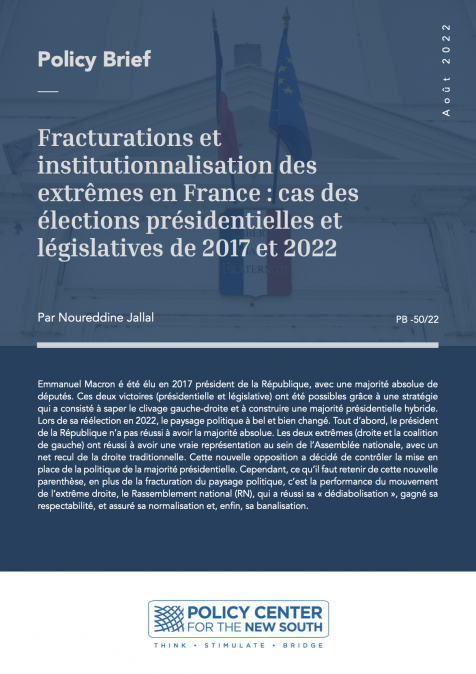Publications /
Policy Brief
Emmanuel Macron é été élu en 2017 président de la République, avec une majorité absolue de députés. Ces deux victoires (présidentielle et législative) ont été possibles grâce à une stratégie qui a consisté à saper le clivage gauche-droite et à construire une majorité présidentielle hybride. Lors de sa réélection en 2022, le paysage politique à bel et bien changé. Tout d’abord, le président de la République n’a pas réussi à avoir la majorité absolue. Les deux extrêmes (droite et la coalition de gauche) ont réussi à avoir une vraie représentation au sein de l’Assemblée nationale, avec un net recul de la droite traditionnelle. Cette nouvelle opposition a décidé de contrôler la mise en place de la politique de la majorité présidentielle. Cependant, ce qu’il faut retenir de cette nouvelle parenthèse, en plus de la fracturation du paysage politique, c’est la performance du mouvement de l’extrême droite, le Rassemblement national (RN), qui a réussi sa « dédiabolisation », gagné sa respectabilité, et assuré sa normalisation et, enfin, sa banalisation.





